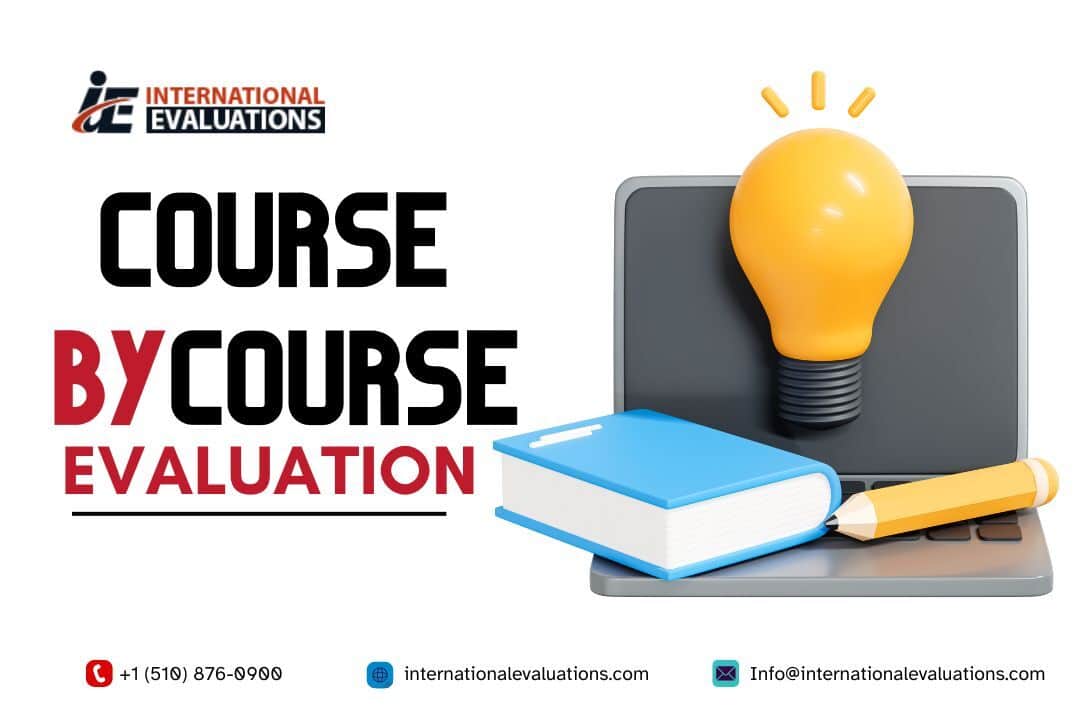Introduction
In an increasingly globalized world, the requirement to assess work experience properly has actually never ever been more crucial. Individuals aiming to advance their careers or relocate frequently find themselves navigating a maze of scholastic and expert certifications from different nations. For companies and universities alike, understanding these qualifications is essential in guaranteeing that they select the best candidates.
This article dives deep into Unlocking Possible: Comprehensive Work Experience Evaluation Techniques, exploring various approaches, including academic credential evaluation, international credential evaluation services, course-by-course credential evaluation, and the value of the expert opinion letter in making informed decisions about prospective employees or students.
Unlocking Possible: Comprehensive Work Experience Assessment Techniques
Evaluating work experience works as a bridge in between private potential and chance. Yet, how do we open this prospective effectively? The answer depends on a multi-faceted approach that integrates different evaluation strategies tailored to specific requirements and contexts.
Understanding Work Experience Evaluation
Work experience assessment evaluates a person's expert background, skills, and competencies relative to job requirements or educational requirements. This process can substantially differ based upon area, market, and specific roles.
The Value of Precise Evaluation
Why is precise work experience assessment essential? Slipups can result in bad hiring decisions, mismatched academic positionings, or unfinished career aspirations. It's necessary for employers and organizations to ensure they use exact techniques when examining qualifications.
Key Parts in Assessing Work Experience
Professional Background Check
A thorough evaluation of previous employment history is vital. This consists of validating task titles, periods of work, responsibilities held, and achievements.
Skills Assessment
Comprehending the abilities obtained during previous roles helps gauge suitability for future positions.
Industry Relevance
Examining whether previous experiences align with current industry requirements is important for a significant assessment.
Academic Credential Evaluation
This involves examining any formal education received alongside professional experience.
Types of Credential Evaluations
International Credential Assessment Services
When candidates have certifications from foreign institutions, worldwide credential evaluation services come into play.

What Are International Credential Assessment Services?
These services evaluate foreign instructional qualifications versus local requirements. They offer insights into how degrees translate within the domestic education system or labor market.
Why Usage These Services?
- To understand equivalency in regards to education level To assist in smoother migration processes To boost employability by confirming foreign qualifications
Course-by-Course Credential Evaluation
What Is Course-by-Course Credential Evaluation?
This type examines each course taken during a candidate's education journey rather than simply supplying a general degree equivalency.
Benefits
- Detailed insights into particular courses undertaken Enables institutions to make informed decisions relating to credit transfers Supports applicants looking for additional education by highlighting strengths and weaknesses
Crafting Effective Expert Viewpoint Letters
An expert opinion letter works as a vital document in lots of assessment processes.
What Is an Expert Opinion Letter?
This letter is composed by specialists https://internationalevaluations.com/rfe-solutions/ who have proficiency in evaluating educational credentials or work experience relative to market standards.
Why Are They Important?
Expert opinion letters serve numerous functions:
- Provide reliable assessments Validate claims made by prospects about their experiences Enhance trustworthiness during application procedures
Steps for Performing a Comprehensive Work Experience Evaluation
Gather Documentation
Collect all relevant documents including CVs, reference letters, and performance reviews.
Conduct Interviews
Direct discussions provide deeper insights into candidates' experiences and soft skills.
Use Standardized Tools
Utilize frameworks or tools created for examining skills and experiences systematically.
Comparison Versus Standards
Align findings with industry standards to determine significance and value.
Compile Findings into Reports
Present results clearly for stakeholders' evaluation-- openness is key!
Challenges in Work Experience Evaluation
Recognizing Pitfalls
Despite best efforts, difficulties are plentiful in assessing work experience accurately:
Cultural Differences Variability in Task Titles Lack of Standardization Across AreasHow to Get rid of These Challenges?
- Train critics on cultural competency. Utilize databases that clarify job title equivalencies throughout industries.
FAQs
1. What does scholastic credential examination entail?
Academic credential examination usually includes examining degrees gotten from numerous organizations worldwide to determine their equivalency in another nation's education system.
2. Why are global credential evaluation services necessary?
They help validate foreign qualifications so that people can acquire employment or admission into educational programs without confusion over their qualifications' legitimacy.
3. What differentiates course-by-course credential assessment from regular evaluations?
Course-by-course evaluations examine each individual course taken during one's education rather than simply assessing the degree as a whole.
4. How does an expert opinion letter support my application?
An expert viewpoint letter supplies authoritative backing for your claims regarding your certifications or experiences and can significantly boost your application's strength.
5. What are common difficulties faced during work experience evaluations?
Common challenges include cultural distinctions affecting interpretations of roles/skills, variability in job titles throughout areas, and absence of standardization causing confusion over equivalencies.
6. How can I prepare for a work experience evaluation?
Gather extensive documentation like your CV/resume, recommendations from previous companies, performance reviews if readily available, and be ready to discuss your experiences openly during interviews.
Conclusion
As we've explored throughout this article on " Unlocking Potential: Comprehensive Work Experience Assessment Techniques," it's clear that effective assessments hinge on nuanced understanding and careful execution of a number of methods-- varying from academic credential evaluations to skilled opinion letters that provide credence to individual narratives.
Employers need to welcome these extensive techniques not just as bureaucratic needs however as opportunities to empower people through fair assessments-- eventually unlocking the vast potentials hidden within diverse backgrounds worldwide! By investing time in refining these methods today, companies can develop stronger groups tomorrow while people can browse their profession courses with clearness and confidence.